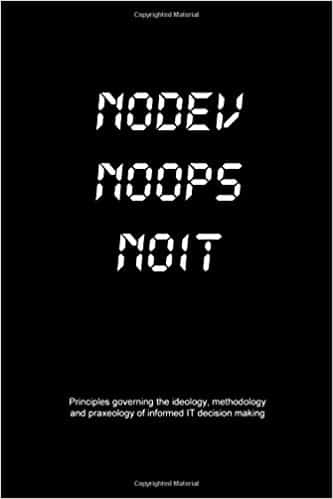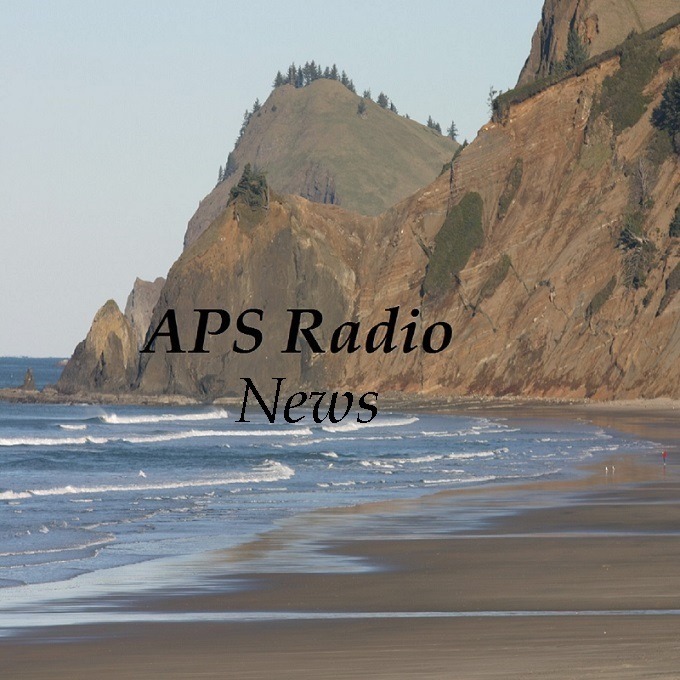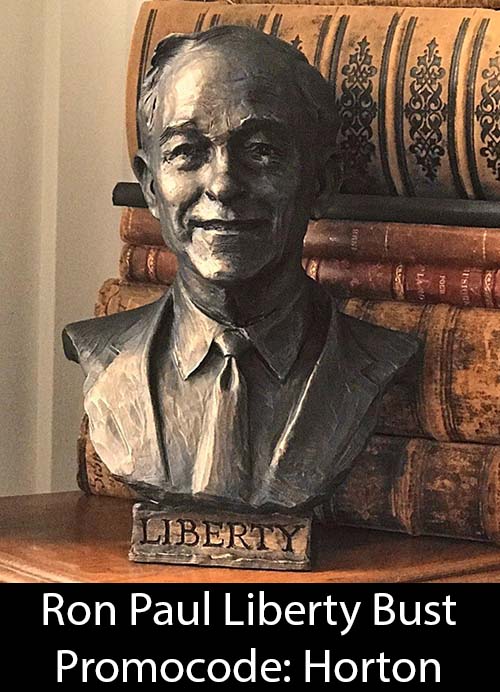Patrick Cockburn discusses Iraq’s increasingly desperate economic outlook as oil prices remain at historic lows. Iraq’s economy, like many of those in the Middle East, is hugely reliant on oil, with millions directly on a government payroll that depends almost entirely on the oil market in order to remain solvent. Worsening conditions could endanger an already fraught political environment in a country that continues to battle the remnants of an ISIS insurgency in the western part of the country.
Discussed on the show:
- “Iraq will be hit harder by the oil price drop than by coronavirus or Isis” (Independent)
Patrick Cockburn is the Middle East correspondent for The Independent and the author of The Age of Jihad and Chaos & Caliphate.
This episode of the Scott Horton Show is sponsored by: NoDev NoOps NoIT, by Hussein Badakhchani; The War State, by Mike Swanson; WallStreetWindow.com; Tom Woods’ Liberty Classroom; ExpandDesigns.com/Scott; Listen and Think Audio; TheBumperSticker.com; and LibertyStickers.com.
Donate to the show through Patreon, PayPal, or Bitcoin: 1KGye7S3pk7XXJT6TzrbFephGDbdhYznTa.
The following is an automatically generated transcript.
All right, y’all welcome it’s Scott Horton Show. I am the director of the Libertarian Institute editorial director of antiwar.com, author of the book Fool’s Errand: Time to End the War in Afghanistan. And I’ve recorded more than 5000 interviews going back to 2003, all of which are available at ScottHorton.org. You can also sign up to the podcast feed. The full archive is also available at youtube.com/ScottHortonShow. All right, guys on the line, I’ve got the great Patrick Cockburn from the independent independent co.uk and the author of a bunch of great books including the age of jihad. Welcome back to the show, sir. How are you doing?
Patrick Cockburn 0:53
Great. Good to be back.
Scott Horton 0:55
Good. Good to talk to you. As always, Patrick. Very important article. hear about Iraq. Iraq will be hit harder by the oil price drop than by Coronavirus or ISIS. And so yeah, it sure is because of the lockdown worldwide here. The demand for oil has just fallen completely through the floor and for a country like Iraq, they’re just about entirely dependent on oil revenue to make everything go there, aren’t they?
Patrick Cockburn 1:28
Yeah, I mean, it’s, there’s really nothing else you go to the market, in Baghdad or anywhere else in the country. You know, you find that absolutely everything comes from elsewhere. You know, you want to buy an onion, you want to buy a watermelon, these comes from Iran or turkey or anything more sophisticated, you know, it’s sort of clothing, Turkey, you know, or from China or somewhere like that. There’s almost nothing produced locally. So we’ve got about 90% dependent on oil revenues. But I think what’s interesting also that this is in Iraq, this is, you know, it’s it’s dependent, but actually all the oil producers all the same, you know, Saudi Arabia, although they, they say that try to develop or have been trying to develop other economic activities, that completely dependent on oil. So if we’re looking at a long term collapse in the oil price, we’ve had collapses before, but nothing as radical as this unlikely to be as long as this, you know, this, we were I think we’re seeing I started change that in the 1970s we have the rise of the oil superpowers, you know, Saudi Arabia and the others, and that’s going to go into reverse.
Scott Horton 2:40
Yeah. Well, that really could lead to massive instability, as you said, not just in Iraq, but throughout the entire Gulf region, right.
Patrick Cockburn 2:50
Yeah, cuz these are states, you know, in some ways that different Iraq, Saudi Arabia, but they have some things in common that a big chunk of the population work or at least about paid by the government for about four and a half million people in Iraq. It’s the main source of employment. Similarly, in Saudi Arabia, that’s what you want to do work for the government, but you may not do much work, but you get paid. If this is, you know, this cost a lot of money. So even in April in Iraq, I think they needed $5 billion to just meet salaries and pensions, that sort of stuff. And they got about, you know, $1.4 billion. Now, they got some reserves, but you run through those pretty fast if you’re, you know, if you’re just if the gap is that big between what you need and what you’re getting in terms of revenue.
Scott Horton 3:39
Yeah. Well, maybe they can just ask the Federal Reserve to create another trillion for them.
Patrick Cockburn 3:45
Well, you could do that. I mean, you could go out and borrow it, you know, and that’s what the oil producers will try to do. You know, they’ll sell assets overseas, but this will be true of Saudi Arabia and Iraq. You know, they’ll they’ll try to borrow you know, Then maybe you can do things like, you know, cut salaries, it’s a difficult and dangerous to cut jobs because that point you really start hitting people, but they could cut those talk at Baghdad, cutting salaries by 20 or 30%. That might happen. But you know, it’s a real, it’s a real bind. And particularly in Iraq, you know, we’ve had these very violent protests since last October. We’ve had about 700 dead and protesters killed and 15 20,000 wounded. Now that rather Abduh way at the beginning of the year with the the assassination of the Iranian General qasem soleimani by the West at Baghdad airport, and then we had of course, Coronavirus, curfews, but some of these protests are coming back. And a lot of these people are basically looking for jobs you know, and if they’re going to be noticed jobs for them, then that sort of protest is going to go on. So this is really stirring the pot in the Middle East, in general, but particularly in Iraq.
Scott Horton 5:10
And now when you talk about those protests from last fall, and that was in good times when the money was still coming in, right?
Patrick Cockburn 5:18
Yeah, it was, I mean, I was there the night they started, you know, it was complete surprise, though they’ve been demonstrations, actually for two or three years, but they weren’t, you know, they weren’t really getting off the ground and then the security forces and various paramilitaries opened up and killed first night killed 10 people then went on shooting people, but it was very much generated by this very violent reaction. I think it was probably pushed by Iran. Thinking that they were facing a velvet revolution against in Baghdad they weren’t and they sort of created the situation they wanted to avoid, but you know, There’s a restiveness you could see the same thing happening in Lebanon, potentially, you know, in a lot of other countries that one of the reasons these oil producers, you know, dictatorships, one of the reasons they’re stable, they’re quite a big chunk of the population has got a stake in the system and they find out not getting the money, then they don’t have that stake and they’ll react.
Scott Horton 6:22
Yeah, well, importantly, that protest movement was almost entirely among the Iraqi Shia, the super majority that if anybody’s represented by the Baghdad government, it would be them. I even read a thing where some Sudanese out in Fallujah, in the West, we’re saying, Hey, we’re sitting this one out, we don’t want the government to point the finger at us and blame us for being agitators or call us ISIS or anything. We’ll go ahead and let this movement go on. Kind of representing them but not directly in their name.
Patrick Cockburn 6:55
Exactly. It’s they, uh, you know, they had The the kind of supported it but they could see first of all if if the government if the government previous government was repressing it the sheer population that badly they thought what the hell will they do to us it’s gonna be a lot worse and it also won’t do us a lot of good because then the government will say, Oh, it’s all Islamic State it’s all diatribes it’s back in business support it very wisely they they sat that out you know, we’ve had things you know, the Iraq either tends to be leading the news agenda towards 24 seven You know, when Solomon he was shocked when, you know, when the US had 138,000 troops there, etc, or it completely disappears from the from the news agenda. A moment of course, practically everything’s disappeared from the news agenda and apart from Coronavirus, but there have been important changes there. We got a new government under Mustapha Academy. They’ve You know, this is sort of an attempt to have a new start in Iraq.
Scott Horton 8:12
We’ll talk a little bit more about that this guy, Mustafa all Academy. He’s not he’s the first prime minister to not be from the dollar party or the supreme Islamic Council, right?
Patrick Cockburn 8:25
I’m not sure. I don’t actually know if he was a member of Dawa. A wouldn’t be far off. He’s sort of, you know, one of the problems about rocky politics or commentary on rocky politics as people tend to sort of stereotype it of, at the moment, they’re saying based off our academy close to the US sort of secular liberal. Yeah, us I know, I know. I’m pretty well, it’s just a liberal minded guy, you know, but he’s very much a part of you know, the his sheer You know, long term opponent, militant opponent out of sight outside of saying, you know, nobody wants to stay in business in Iraqi politics can really be 100% identified with the US or indeed with Iran. You know that you need to cover all the bases, which he’ll do. You know, he’s just pretty smart guy. But you know, as everybody who’s ever tried to do it has discovered to their cost of rolling it wrong because it’s really difficult business. And this is a particularly so dark moment because there isn’t enough money.
Scott Horton 9:40
Yeah, he sure became prime minister had a bad time when everything is completely drying up like that, but I guess I had read that there were some in the American government who were looking at his appointment as a kind of victory for them. As you know, he was Less Iranian tide figure than some of the others or something like that. Is that just unwarranted optimism on their part?
Patrick Cockburn 10:07
Oh, you see, you know, he’s quite close to them. He was in London. I think he’s a British a rocky citizen. He lived in London for a long time. The but I think that probably the way the Iranians look at it is they want the shear block to remain in power. And that he is a share from that block. That’s the most important thing for them to remain in power in Baghdad. Then anybody who wants to do that has to have relations with the US and Iran, even if they keep quiet about it. So you see, the current President byram Sunday used to be the one of the Kurdish representatives in Washington speaks very good English was always associated, but the US But it was the Iranians who okayed him as President, somewhat to people’s surprise, because they weren’t, you know, they want to from his point of view, if you’re going to have that sort of position, then you got to have relations with Tehran and Washington. You may try and sort of keep it a little undercover, but you’ll have to do that. So that’s true of the Academy, the new prime minister as well. So it’s, you know, it’s a shear block he’s just reappointed and important. General call out Abdul Wahab Sadie he was one of the guys who recaptured proposal, but again, harmony is a shear general. The so you know, there isn’t going to be a great shift. I think what they’ll try to do is not have a right Continue to be the arena in which the US and Iran confront each other. The but I don’t think you’ll see them switching radically against Iran or vice versa. They also want to get us troops out. But although sort of fairly friendly basis.
Scott Horton 12:24
Well, yeah. Now So speaking of which, in terms of American tensions with Iran in Iraq, the latest was just a few weeks ago, there was another rocket attack or two on American bases, allegedly by Shiite militias. In the news here was that Mike Pompeo, the Secretary of State, was urging Trump to attack Iran over it. And he said no, based on the public relations aspect that he thought it would look too bad to do that when Iran was in the midst of the Coronavirus crisis. There, but looks like there’s still a danger of, of blows in Iraq escalating into war with Iran there. What do you think is the current level of attention?
Patrick Cockburn 13:13
Well, it’s thought, you know, that’s the problem with the Trump administration, you know, that Trump has and you know, Trump has not actually started a war and certainly not with Iran since he you know, in the years he’s been in the white house but the guys around him don’t necessarily think like that. Someone always feels at some point they may do something which could provoke them though they they they might not necessarily wanted but you know, who know you know, these guys are very crazy, you know, I mean, pay they don’t know anything much about Iraq or Iran. So be quite easy for them to go over the edge. You know, we almost saw them at the beginning of the week. Solomon, he was assassinated. And then we had this rather remarkable thing of Iran, you know, firing missiles at us basis and the US doing nothing about it, except deny anybody who was hurt, which turns out to be not true, you know, but is it struck me at the time that nobody seemed very astonished that you were you had the Iranians actually sort of sending missiles rather accurately into us basis and the US sort of, you know, what are the White House says, well, it doesn’t really matter, right. You know, they could escalate things. It’s so sort of quirky. The iraq case we’ll try to avoid that happening. Coronavirus, probably made it more make it more difficult to do.
Scott Horton 14:48
Apparently the general in charge of the Iraq War sent a memo back to DC saying we cannot do this would be picking a fight with our friends in the Iraqi army.
Patrick Cockburn 15:01
Yeah, it’s just quite easy to make a misstep, you know that, you know, the this general who’s been appointed head of the counterterrorism service whose dismissal camp just before the riot started last year and they’ve been connected with the with the is back. You know, the thing is I pro American general but it’s really not as simple as that the pattern of Iraqi policy politics is and has always been that you have lots of centers of power in Iraq. And it’s always a mistake to Trump any of them out of business because if you do, bad we’ll come back at you when they’ll unite with other centers of power. So I don’t think that Iraq or change its position very much. On the other hand, it needs the EU or the US has just renewed 120 day waiver to getting for era To get electricity and gas from, from Iran, which needs to keep the lights on. But while they’re always waiting for them to, you know, to sort of slightly to overstep the mark. And that could happen and Iraq itself, you know what it can do about the shortage of money we’ll probably borrow. It has some reserves, but these, you know, that it’s being squeezed. And it’s gonna, this is gonna be long term, you know, it’s devoted to the price of oil come back in recent days, but just in the longer term, you know, presumably, what’s going to see not see people use as much gasoline,
Scott Horton 16:41
hold on just one second, be right back. So you’re constantly buying things from amazon.com. Well, that makes sense. They bring it right to your house. So what you do though, is click through from the link in the right hand margin at Scott Horton. org, and I’ll get a little bit of a kickback from Amazon’s into the sale won’t cost you a thing. Nice little way to help support this Show. Again, that’s right there in the margin at Scott Horton. org. Hey, I’ll check it out the libertarian Institute. That’s me and my friends have published three great books this year. First is no quarter, the ravings of William Norman Greg. He was the best one of us. Now he’s gone. But this great collection is a truly fitting legacy for his fight for freedom. I know you’ll love it. Then there’s coming to Palestine by the great Sheldon Richmond. It’s a collection of 40 important essays. He’s written over the years about the truth behind the Israel Palestine conflict. You’ll learn so much and highly valued this definitive libertarian take on the dispossession of the Palestinians and the reality of their brutal occupation. And last but not least, is the great Ron Paul, the Scott Horton show, interviews 2004 through 2019 interview transcripts of all of my interviews of the good doctor over the years on all the wars, money taxes, the police state and more. So how do you like that? Pretty good. Right. Find them all at libertarian Institute.org/books. You need stickers for your band your business. Will Rick and the guys over at the bumpersticker.com have got you covered great work, great prices, sticky things with things printed on them. Whatever you need the bumpersticker.com we’ll get it done right for you, the bumper sticker.com.
But now, so what’s the state of the Sunni based insurgency in the western part of the country? I mentioned US troops getting attacked by Shiite militias that their base is there, but they’re at those bases to fight with those Shiite militias against the Sunni militias. What’s left to the Islamic State? Right.
Patrick Cockburn 18:43
Yeah, and also support the position in Syria, across the border and in eastern Syria. Um, I think it’s a bit exaggerated, you know, it makes a good headline to say you know, ISIS back in business, too. Back in business, because people you know, at its height, ISIS dominated the news agenda, you know, for long periods. You know, they did deliberately through their atrocities but, you know, the Islamic states, like the the caliphate that they declared in 2014, when they captured Mosul and held most of western Iraq in eastern Syria, you know, that’s gone. You know, they have they, they have militants around their attacks in north and west of Baghdad. There’s a bit of a uptick in these recently, but these are generally pretty small compared to what we used to see. You know, it’ll be an attack or an ad post attack on a convoy you know, 4678 910 dead, but not least, there are multiple attacks we used to see a few years ago People say Haha, but it’s like 2014 they’ll come back in the same way. Not really, to my mind. ISIS, you know, they’re dependent on having the element of surprise. They depended on having a power vacuum in eastern Syria because the Syrian government did with drone, Syria was in in turmoil because of the civil Civil War. That was in Iraq, that beat a sort of civil big civil discontent by the Sony. So it doesn’t have power vacuum to fail. And also ISIS was defeated. You know, that one point, you know, these guys claimed that God was with them, and they were wanting bringing these wonderful about Napoleonic victories that isn’t happening anymore. So it’s significant, but it’s not happening. You know, it’s not sort of ISIS coming back in the way stead and it can be very difficult to to do that.
Scott Horton 20:56
Well, and so speaking of which, I mean, at this point, serious side when it just comes down to the fight against what’s left of the Islamic State insurgency there in Iraq. Could the Americans just leave and leave it to the Iraqi army and the Shiite militias to handle what’s left of the problem there?
Patrick Cockburn 21:18
It probably could have been the crucial thing has always been with the US presidency. presence is our PA. You know, this is a big area to control from the Iraqi point of view or the across the border where the Syrian Kurds are, and the strength is built to call in the US Air Force. But even if they couldn’t do that, I doubt it would change things against them, but it wouldn’t change things decisively. The so you know, so they’re still there. They have people Heidi eyes on the desert. They have air is, you know, deserted villages the, you know, there are a lot of refugees they can recruit from, I mean sone refugees, but they don’t have a, you know, one point that genuine popular support and a semi Sonic community. I don’t think they have that anymore. Party plus people know what happened last time and don’t want to suffer another defeat. So I don’t know. Sorry. It’s a long way around to answer your question, but the answer is Yeah. It wouldn’t decisively change things if the US totally withdrew, but it would be make their life easier for ISIS if they weren’t under attack, though, Todd. Yeah.
Scott Horton 22:39
And now, are the Kurdish Peshmerga still involved in that fight or not?
Patrick Cockburn 22:45
who say they are in Iraq, the Peshmerga never been in you know, they always sort of talk a big game but there’ll be that much involved. You know, the, somebody knew a lot about them referendum. always used to call them no you can call them Peshmerga call them the Peshmerga, you know, no, actually did that amount of fighting the PKK Well, no, don’t call themself PKK. But the civil YPD in eastern Syria, the Kurdish fighters, they’re there. They’re much more formidable army. They’re they do a lot of fighting and tough. But there’s a contrast between the Kurds in northern Syria and northern Iraq.
Scott Horton 23:27
And now, Well, speaking of which, on the Syrian side of the border there. The Americans are still occupying the oil fields, and who are they keeping out the Syrian government? Or are there any ISIS types? Do they still have to fight?
Patrick Cockburn 23:43
Well, I just would like to get back there. I mean, the Kurds have the oil, there’s a big sort of black market in oil there. Well, it’s very visible. I mean, I suddenly sometimes read stuff in the papers saying, you know, oil is being smuggled from those areas and they have the oil They’re, but they don’t have a refinery. So if you want to get it refined, a lot of it goes to a whomps refinery in it’s in government held territory. So, a lot of the cut of soil then goes to outside government held territory goes to the refinery there that then comes back. And both sides benefit. You know, you sometimes see see this referred to as smuggling black sheep stand on the main road. Just the on the afraid it doesn’t the other Euphrates there I would have done you know that there’s a continual stream of oil tankers coming backwards and forwards. There’s no attempt to conceal this. A lot of that stuff goes into Iraq to is refined in the Kurdish area. That always happened you know, there’s a sort of, there are enormous black economy in both coutries.
Scott Horton 24:57
Well, and also as long as we’re on serious Do what’s the status of the conflict in the Iliad province at this point?
Patrick Cockburn 25:06
Well, you know, it’s quieted down there you don’t have a government offensive like before, after sort of one more agreement between Turkey and Russia. The rebels natively have lost quite a lot of territory. You like a very badly hammered by Syrian Russian Air Forces. The but it’s sort of quieted down. I imagine that asset feels that he can sort of have a sort of salami tactics whatever things allow him to do so he can sort of chop off a bit more of it. The bit that remains is more and more under Turkish control. Although the higher Tyrion of sharm which is used to be called El nostra, which used to be says now it has no links to al Qaeda but who knows. But then more and more squeezed And I think less and less sort of interest in the West and keeping them going. Sad, you know, severe sanctions. But being a very firmly in power, some inviting at the top in Damascus, between within the top of the regime, but that probably reflects the fact that they don’t feel under pressure as they used to. Yeah, yeah. The, but nothing quite settled, you know, you never quite you know, the many mistakes of the US and the western in Syria was to think, you know, okay, we don’t quite want our side to lose and ISIS to win the lottery fundamental is to win. That’s bad news for us, but we don’t want it to win. So, you know, we’ll basically let this go on. You know, what came out of it? Well, that’s one of the reasons that ISIS developed, you know, is Allowing the war to go on there. That’s one of the reasons why, you know, you ended up with so many refugees not going home and going into Europe, you know, which had big political effects in Europe. So, it seems to me like making the same mistake as before thinking that you can have Syria sort of gripped by a sort of permanent crisis and war. And that doesn’t matter. The lesson in the past is that very nasty things come out oo that.
Scott Horton 27:29
Yeah, yeah. Well, what I mean, it seems like for the Turks part, they didn’t too much mind all the nasty parts coming out of back in the jihadist, but at this point, when the war is essentially over, what motive Does everyone have to continue to keep the on those guys in play there?
Patrick Cockburn 27:51
Well, he sort of, it’s one of the cards they’ve got, you know that they control that bit of northern Syria. He’s always you know, across the border against the Syrian Kurds, which is what he’s really concerned about. Turkey wants to be a player there. But I agree, they don’t get that much out of it. You know, it’s uh, it’s, they’re involved in that particular mess. And maybe they’re advanced again, you know, they’re practicing ethnic cleansing and part of driving out the Kurds in different parts of northern Syria, or replacing them with refugees from Damascus and elsewhere. You know, it’s a messy, nasty situation. Again, it’s something that disappears off the world’s political radar for long periods, even more so this these days because of the COVID-19 and then suddenly you have a big explosion and people say are we’re about to go to war, you know, like you do when you live Turkish invasion last year. You know, lots of nasty things can come out of this. Yeah. I think it’s slightly more likely because the attention of the world is sort of diverted else where.
Scott Horton 29:13
Yeah. Well, there certainly be plenty of attention if it was Assad that was back in Al Qaeda and it lib province instead of Aaron Juan.
Patrick Cockburn 29:21
You betcha. Yeah. And then, you know, you just feel that sort of compel, you know, this sort of, at some point, look, crackpots will do something that will, you know, lead to a more general conflict.
Scott Horton 29:36
Yeah. I think that’s really right about the crackpot angle there. You know, when I mentioned that kind of memo back that the general in Iraq had written about the danger of fighting the Shiite militias there. It seemed like he was really taking the opportunity to teach them who were the shirts and who are the skins and, and which side were on over there and what it would be For us to pick a fight with the side we’ve been allied with all this time, and that he seemed to understand that pompeyo and probably Trump did not understand who’s on whose side over there and what it would mean for them to turn the war against the Shia. And so he had to kind of teach them the one on one on the situation.
Patrick Cockburn 30:20
Yeah, I think so. The, you know, the Iranians, usually in Iraq War, or the US or Iran or some other foreign powers gets overconfident never plays their hand. The Iranians last year over playing their hand soleimani appears to be the guy responsible for the very violent repression of the of the Shia protesters, which was, you know, catastrophic from the Iranian point of view, because Iraq has blamed Iran for all these, you know, on a project desktops are being dumbed down. That’s an apt away at the moment. The so it may be that, you know, things will get a bit quieter. But do you know this? Every so often, the White House decides to pump up the confrontation with Iran. And that could happen at any moment. Again, you know, and the Iranian if you push the Iranians, then the Iranians probably getting a little bit of confidence back, you know, they could attack elsewhere like they did last year, when they attack the Saudi oil industry. You know, it’s still the temperatures still very high there. And it could, could sort of detonate something at almost any moment.
Scott Horton 31:51
Yeah. Well, and there’s been all these riots breaking out in Lebanon over the financial crisis there and others Don’t know whether they have the same, you know, currency problems in Iraq and Syria. But as we’re talking about here, they’re going to all have one sort of financial crisis or another here, when the whole world is going through one and they are such oil centric economies or I don’t know about Syria. I know they rely somewhat on oil. But they’re all going to be hit pretty hard by this thing. They already are. Right?
Patrick Cockburn 32:28
Yeah, I mean, you know, these are one way to think about these oil states. They’re big likes or Tammany Hall, you know, they, uh, they, they provide you know, everybody knows about how corrupt they are at the top you know, lots of money stolen by the the guys at the very top but then below that, you know, you have millions of people who have well paid jobs in Saudi Arabia or Kuwait, Qatar, Dubai or somewhere Abu Dhabi, they don’t do it, they don’t do much. And that gives us sort of stability to these places. Even with all these protests in Iraq last year, you know, you you had people who a lot of people who’ve got decent jobs, they weren’t protesting, whereas they’re decent jobs they got paid. The problem by these oil producers is that if you can get a job with the government, you know, that’s fine. And you can do that. And if you belong to the Right Sector feel shear if you belong to the right political party, ministry, government ministries tend to be the sort of cash cause of different political movements. So you’ll find if you’re bogged in there, but if you aren’t, then you’re nowhere you’ve got a real before these protested outside the foreign ministry, I found guys there who has had that so they were in a camp and they’d been on a hunger strike of who failed to wants to get jobs. The Foreign Ministry, that was one mind. And, you know, if you don’t have the right connections, you don’t have to have that job. You know, you will be unemployed for decades during your life. And that’s one of the things that tests is this sort of desperate need for jobs which the government just can’t provide. And it’s going to be, I think the new government and Academy will be, you know, these are pretty smart guys, new finance ministers pretty good and so forth. But you know, at the end of the day, if the money isn’t there, it isn’t there, you know, so a problem. They’re facing a real problem.
Scott Horton 34:37
Yeah. All right. Well, thank you so much for the time again on the show, Patrick, always great insight.
Patrick Cockburn 34:44
Good to talk to you. All the best.
Scott Horton 34:45
All right, you guys that is the great Patrick Cockburn from the independent that’s independent.co.uk and also is the author of the rise of Islamic State chaos and Caliphate the age of Jihad and many other great books as well. The Scott Horton show anti war radio can be heard on kpfk 90.7 FM in LA APSradio.com antiwar.com scotthorton.org and libertarianinstitute.org.
Podcast: Play in new window | Download
















